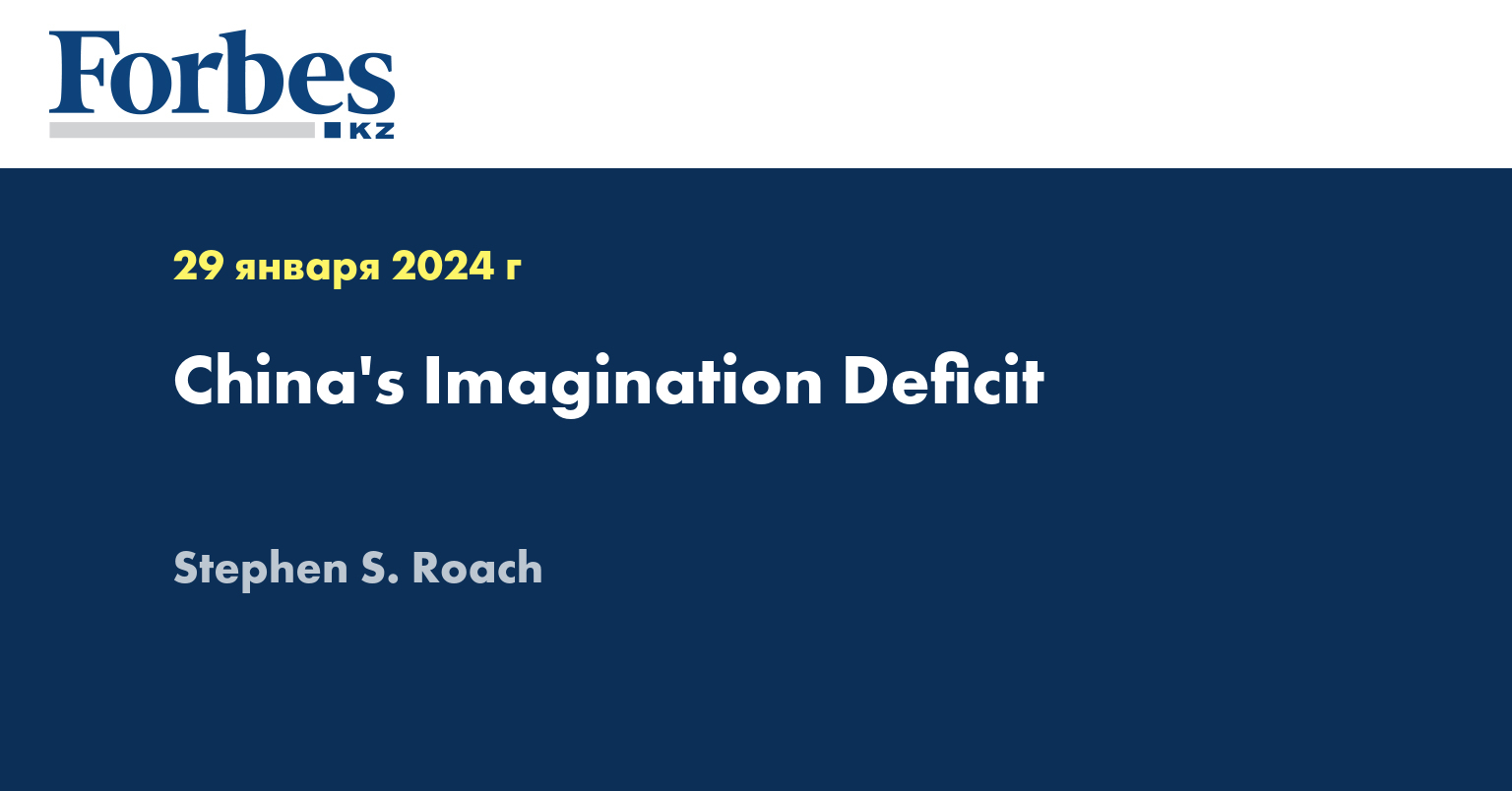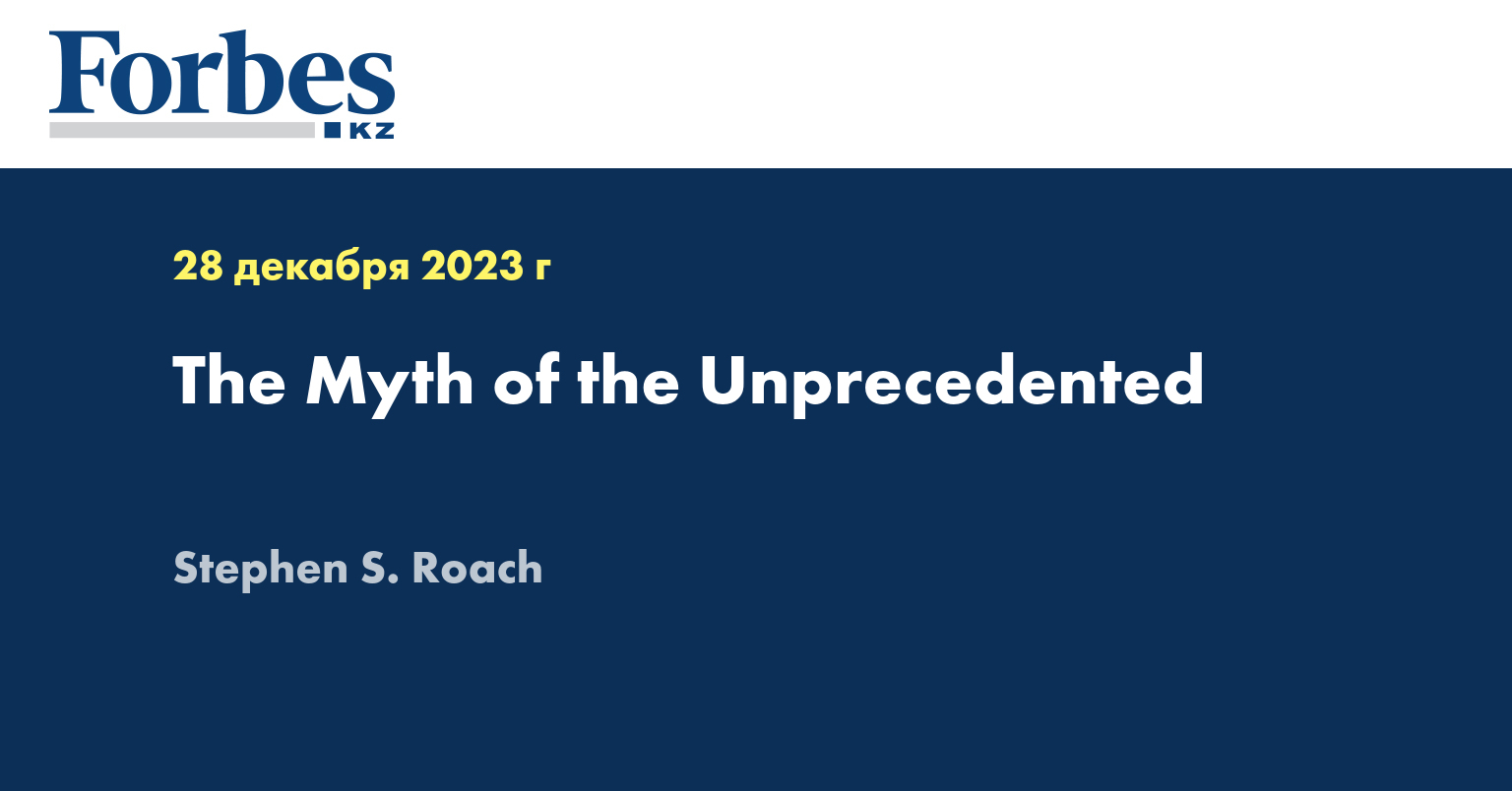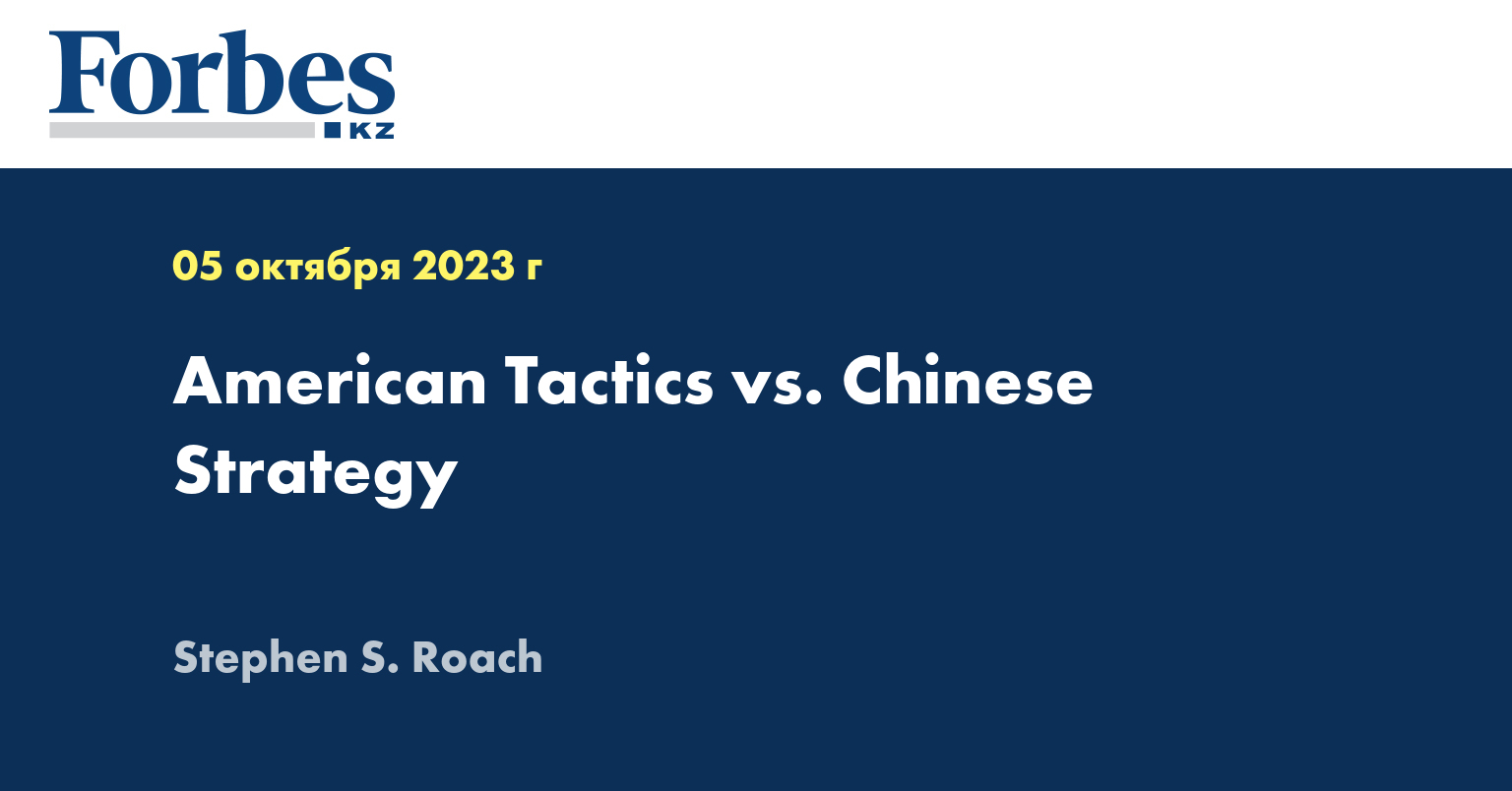China is at a critical juncture. Its deflation-prone debt-intensive economy is seriously underperformin
29 января 2024
5 мин.
21274
I have been in the forecasting business for more than 50 years. Over that period, I have heard the constant refrain that the world is in the midst of “unprecedented changes”
28 декабря 2023
5 мин.
42480
US President Joe Biden and Chinese President Xi Jinping’s San Francisco summit was a significant improvement on last year’s meeting in Bali. In particular, the two leaders made progress on achievable objectives, including the resumption of military-to-military communications and joint efforts to address the fentanyl crisis
26 ноября 2023
5 мин.
30409
All eyes are on the upcoming leaders’ meeting of the Asia-Pacific Economic Cooperation (APEC), to be held in San Francisco from November 11-17
11 ноября 2023
5 мин.
25630
The debate over the difference between tactics and strategy is as rich as it is enduring
05 октября 2023
5 мин.
60282
American politicians have a long history of mangling economic-policy debates. Some recognize reality, like when George H.W. Bush characterized so-called supply-side tax cuts as “voodoo economics”
01 августа 2023
5 мин.
29677
Five years into a once-unthinkable trade war with China, US Treasury Secretary Janet Yellen chose her words carefully on April 20. In a wide-ranging speech, she reversed the terms of US engagement with China, prioritizing national-security concerns over economic considerations
09 мая 2023
5 мин.
43588
I have been a congenital China optimist for most of the past 25 years. I first came to that view in the depths of the Asian financial crisis in 1997-98
08 января 2023
6 мин.
54090
The debate over the difference between tactics and strategy is as rich as it is enduring
05 октября 2023
5 мин.
60282
I have been a congenital China optimist for most of the past 25 years. I first came to that view in the depths of the Asian financial crisis in 1997-98
08 января 2023
6 мин.
54090
Five years into a once-unthinkable trade war with China, US Treasury Secretary Janet Yellen chose her words carefully on April 20. In a wide-ranging speech, she reversed the terms of US engagement with China, prioritizing national-security concerns over economic considerations
09 мая 2023
5 мин.
43588
I have been in the forecasting business for more than 50 years. Over that period, I have heard the constant refrain that the world is in the midst of “unprecedented changes”
28 декабря 2023
5 мин.
42480
China’s 20th Party Congress has come and gone. Despite all the fanfare and media hype, it was a hollow event
14 ноября 2022
6 мин.
35925
US President Joe Biden and Chinese President Xi Jinping’s San Francisco summit was a significant improvement on last year’s meeting in Bali. In particular, the two leaders made progress on achievable objectives, including the resumption of military-to-military communications and joint efforts to address the fentanyl crisis
26 ноября 2023
5 мин.
30409
American politicians have a long history of mangling economic-policy debates. Some recognize reality, like when George H.W. Bush characterized so-called supply-side tax cuts as “voodoo economics”
01 августа 2023
5 мин.
29677
All eyes are on the upcoming leaders’ meeting of the Asia-Pacific Economic Cooperation (APEC), to be held in San Francisco from November 11-17
11 ноября 2023
5 мин.
25630
China is at a critical juncture. Its deflation-prone debt-intensive economy is seriously underperformin
29 января 2024
5 мин.
21274
NEW HAVEN – For the last two years, the conflict between the United States and China has dominated the economic and financial-market debate – with good reason. After threats and accusations that long predate US President Donald Trump’s election, rhetoric has given way to action. Over the past 17 months, the world’s two largest economies have become embroiled in the most serious tariff war since the early 1930s. And the weaponization of US trade policy to target perceived company-specific threats such as Huawei has broadened the front in this battl
05 декабря 2019
5 мин.
19112
I have been a congenital China optimist for most of the past 25 years. I first came to that view in the depths of the Asian financial crisis in 1997-98
08 января 2023
6 мин.
54090
US President Joe Biden and Chinese President Xi Jinping’s San Francisco summit was a significant improvement on last year’s meeting in Bali. In particular, the two leaders made progress on achievable objectives, including the resumption of military-to-military communications and joint efforts to address the fentanyl crisis
26 ноября 2023
5 мин.
30409
American politicians have a long history of mangling economic-policy debates. Some recognize reality, like when George H.W. Bush characterized so-called supply-side tax cuts as “voodoo economics”
01 августа 2023
5 мин.
29677
NEW HAVEN – In a rare moment of bipartisan agreement, America’s Republicans and Democrats are now on the same page on one key issue: Blaming China for all that ails the United States. China bashing has never had broader appeal
04 мая 2019
6 мин.
13369
BEIJING – There has always been a fixation on Chinese economic growth. And with good reason. For a large economy, sustaining annual growth rates of 10% over several decades is unprecedented. And yet that’s exactly what China did from 1980 to 2011. But now the miracle is over. Since 2012, annual growth has slowed to 7.2%, and Premier Li Keqiang’s recent annual “work report” set a growth target of just 6-6.5% for 2019
03 апреля 2019
5 мин.
10269
Five years into a once-unthinkable trade war with China, US Treasury Secretary Janet Yellen chose her words carefully on April 20. In a wide-ranging speech, she reversed the terms of US engagement with China, prioritizing national-security concerns over economic considerations
09 мая 2023
5 мин.
43588
As the trade cycle turns, so goes the global economy. But there is a new twist. With growth in global trade sharply diminished since the 2008-2009 global financial crisis, an upsurge of protectionism and disrupted global supply chains is all the more problematic. There is a distinct possibility that a turn in an already weakened trade cycle could spark a surprisingly swift deterioration in the global economy
07 февраля 2019
5 мин.
10121
NEW HAVEN – Blinded by a surging stock market and a 50-year low in the unemployment rate, few dare to challenge the wisdom of US economic policy. Instant gratification has compromised the rigor of objective and disciplined analysis. Big mistake. The toxic combination of ill-timed fiscal stimulus, aggressive imposition of tariffs, and unprecedented attacks on the Federal Reserve demands a far more critical assessment of Trumponomics
02 июля 2019
5 мин.
8998
US President Donald Trump’s administration has underestimated China’s resilience and strategic resolve. With the Chinese economy slowing, the US believes that China is hurting and desperate for an end to the trade war. But with ample policy space to address the current slowdown, China’s leadership has no need to abandon its longer-term strategy. While a cosmetic deal focused on bilateral trade appears to be in the offing, the sharp contrast between the two economies’ fundamental underpinnings points to a very different verdict regarding who has the upper hand
04 марта 2019
5 мин.
8999
It is tempting to give America’s Federal Reserve great credit for its recent about-face in tackling inflation
09 октября 2022
5 мин.
14520
У автора нет статей, опубликованных в журнале Forbes Kazakhstan
Загрузка...





















